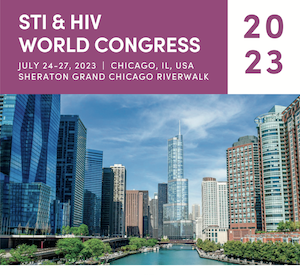Behavioral & Social Science
Category: Research methods
(P314) Process evaluation: Understanding the implementation and adaptation of a peer-led intervention to deliver biosocial Sexual Reproductive Health and HIV prevention for adolescents in rural South Africa.
Wednesday, July 26, 2023
16:00 - 18:00 CST
- SH
Sphesihle P. Hlongwane, N/A, n/a
Research Professional
African Health Research Institute
Durban, KwaZulu-Natal, South Africa
Primary Presenter(s)
Background: The World Health Organisation (WHO) realizes that key shifts are required to end STIs as a public concern by 2030. ‘New’ models of sexual and reproductive health (SRH) services need to be adapted to social contexts to respond to current and future threats. This paper describes the acceptability, feasibility, and experiences of a peer-led intervention to deliver biosocial SRH and HIV prevention for adolescents and youth in rural KwaZulu-Natal, South Africa.
Methods: The Thetha Nami (Talk to me) intervention included peer support for health promotion and facilitated linkage to adolescent and youth-friendly services (AYFS) for SRH HIV care and prevention. Between 2019-2021 we embedded a process evaluation into a randomized controlled trial of the effectiveness of Thetha Nami for HIV prevention. We used the MRC process evaluation framework to collect and analyse both quantitative and qualitative data. Qualitative data explored experiences, perceptions, and contextual influences from the intervention, and survey data captured in REDCAP software determine intervention dose and reach. A total 91 interviews were conducted with young people from both arms, clinical staff, refusals, peer navigators, and research assistants. Qualitative data were thematically analysed, and quantitative data were descriptively analysed.
Results: A total of 779 participants were randomized to peer support, of which 734 participants were contacted. Quantitative process data shows that 675 (87%) of those randomized to peer support received support over two years. A total of 8218 visits were made, with participants being visited between 1 to 25 times. Findings demonstrate that peer-to-peer psychosocial support is acceptable to adolescents and youth. The service users felt that peers were able to deliver health promotion, including sexual and reproductive health, and could refer young people to the AYFS. However, peers felt less able to provide social, educational, and legal support. Findings demonstrated a need for improved social assistance. COVID-19 lockdowns between March 2020 and 2021 resulted in a shift from face-to-face contact to virtual support, impacting intervention delivery.
Conclusion: Peer-to-peer biosocial interventions can effectively mobilize young people for HIV and SRH. However, resources for psychosocial support also need to be included in the package.

